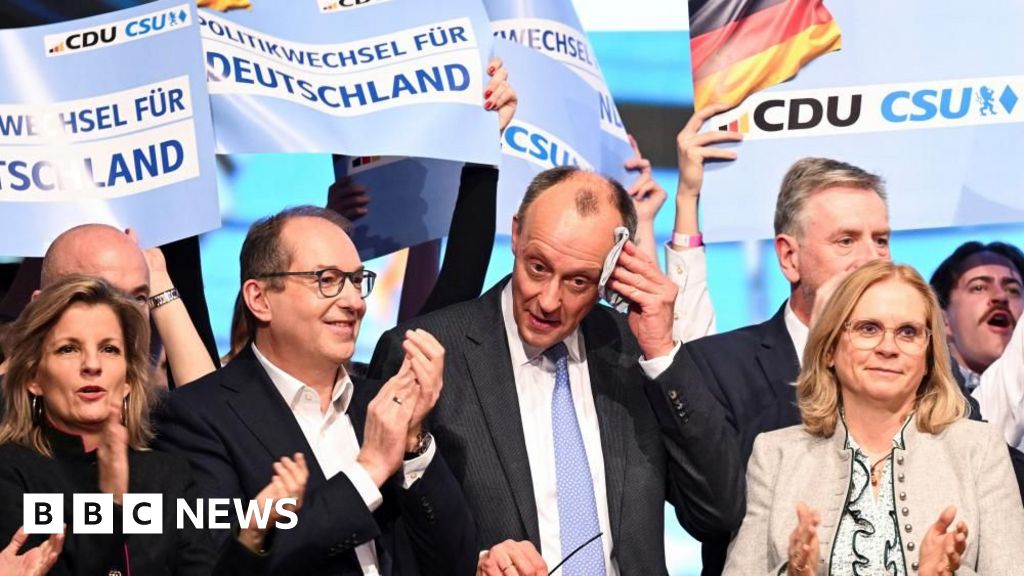Analysis: The Impact Of The German Election On Europe

Table of Contents
Germany's Election: A Ripple Effect Across Europe
BERLIN, GERMANY — The September 2021 German federal election, which saw the Social Democratic Party (SPD) narrowly defeat Angela Merkel's Christian Democratic Union (CDU), sent ripples across the European Union. While the change in leadership wasn't a seismic shift, it marked the end of an era of Merkel's steady hand and ushered in a new era of coalition politics with potentially significant implications for Europe's future. The impact, however, is multifaceted and its long-term effects are still unfolding.
The election's most immediate consequence was the formation of a three-party coalition government: the SPD, the Greens, and the Free Democratic Party (FDP). This "traffic light" coalition, named for the parties' colors, presented a departure from the previous CDU-led governments. Olaf Scholz, the SPD's candidate, became Chancellor, heading a government with a more progressive agenda than its predecessor. This shift impacted Germany's domestic policies, but its influence extended beyond its borders.
Economic Policy and the EU: One of the key areas where the new coalition’s impact on Europe was felt is economic policy. While Merkel's government was known for its fiscal conservatism within the EU framework, the new coalition signaled a willingness to embrace more ambitious spending plans. This included significant investments in green technologies and infrastructure, aligned with the EU's Green Deal objectives. However, this increased spending also raised concerns among some EU member states about potential fiscal imbalances within the Eurozone. The coalition's commitment to strengthening the European Union's social safety net, including a potential reform of the Stability and Growth Pact, also presented both opportunities and challenges for other member states. Negotiations on these issues are ongoing and will significantly shape the EU's economic landscape in the coming years.
Foreign Policy and Geopolitical Shifts: The change in leadership also affected Germany’s foreign policy approach. While Merkel’s approach was characterized by pragmatism and a strong emphasis on transatlantic ties, Scholz's government has signaled a greater willingness to assert German leadership within the EU and to adopt a more assertive stance towards Russia and China. The ongoing war in Ukraine dramatically tested this approach, forcing Germany into a significant shift in its defense and energy policies. The country's commitment to increased defense spending and its move away from Russian gas supplies have implications for the EU's collective security strategy and its energy independence. However, coordinating these changes across the diverse interests of the EU member states remains a significant challenge.
Migration and Refugee Policy: Germany's approach to migration and refugee policy, a long-standing source of tension within the EU, has also seen subtle shifts under the new government. While the coalition government remains committed to a humane approach to asylum seekers, managing the influx of refugees and integrating them into German society continues to be a major concern. The handling of this issue will have ongoing consequences for Germany's relations with other European nations, particularly those in the frontline of migration flows.
Challenges and Uncertainties: Despite the initial promises and ambitious agendas, the "traffic light" coalition has faced significant challenges. Internal disagreements among the coalition partners on key issues, such as climate policy and taxation, have created obstacles to implementing the government's full program. Furthermore, the global pandemic and the war in Ukraine have imposed unpredictable strains on Germany's political and economic landscape, affecting its ability to pursue its European policy ambitions. The long-term implications of the 2021 German election for Europe remain uncertain, but its initial influence has been significant and multifaceted. Further observation will be required to fully assess its long-term impact.

Featured Posts
-
 Kristin Crowleys Reaction To Ouster As La Fire Chief
Feb 24, 2025
Kristin Crowleys Reaction To Ouster As La Fire Chief
Feb 24, 2025 -
 Virginia Officers Shot Driver Calmly Walked Away After Attack
Feb 24, 2025
Virginia Officers Shot Driver Calmly Walked Away After Attack
Feb 24, 2025 -
 Virginia Beach Police Actions Earn Governors Commendation
Feb 24, 2025
Virginia Beach Police Actions Earn Governors Commendation
Feb 24, 2025 -
 Ukraine To Grant U S Access To Key Minerals Report
Feb 24, 2025
Ukraine To Grant U S Access To Key Minerals Report
Feb 24, 2025 -
 Control Your Stress Response Expert Tips For High Pressure Environments
Feb 24, 2025
Control Your Stress Response Expert Tips For High Pressure Environments
Feb 24, 2025
Latest Posts
-
 Fleetwood Mac Album Inches Closer To No 1 In America
Feb 24, 2025
Fleetwood Mac Album Inches Closer To No 1 In America
Feb 24, 2025 -
 2025 College Football Oregon Vs Wisconsin Prediction And Betting Odds
Feb 24, 2025
2025 College Football Oregon Vs Wisconsin Prediction And Betting Odds
Feb 24, 2025 -
 Is A Doge Dividend A Financially Sound Idea Experts Weigh In
Feb 24, 2025
Is A Doge Dividend A Financially Sound Idea Experts Weigh In
Feb 24, 2025 -
 Stevensons Dominant Victory Wbc Lightweight Belt Remains His
Feb 24, 2025
Stevensons Dominant Victory Wbc Lightweight Belt Remains His
Feb 24, 2025 -
 Messi Asiste En Su Debut Con El Inter Miami En La Mls
Feb 24, 2025
Messi Asiste En Su Debut Con El Inter Miami En La Mls
Feb 24, 2025
